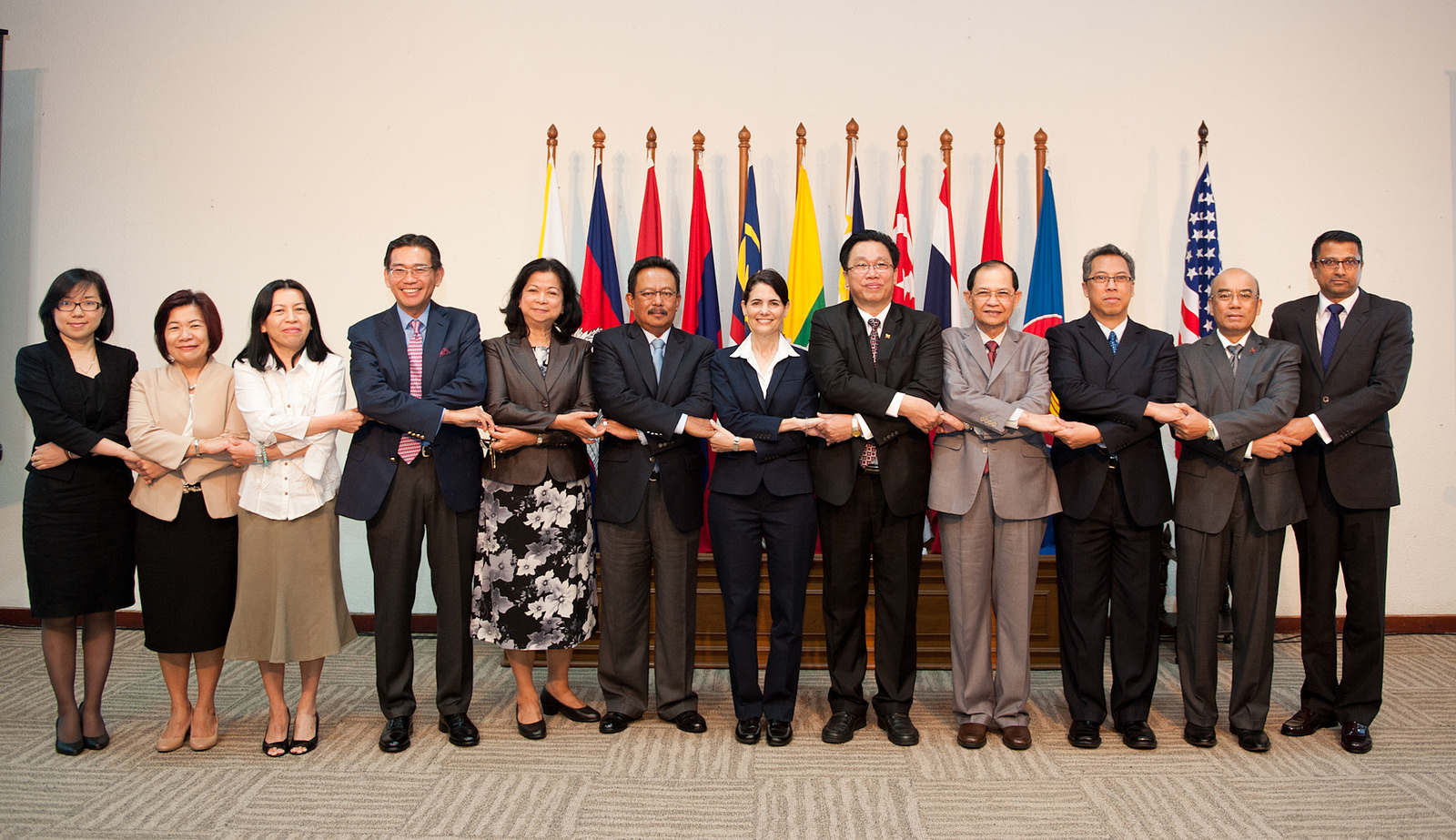Posted in2015,ASEAN Secretariat News

JAKARTA, 8 May 2015 – ASEAN and the United States today agreed to accelerate their cooperation to wrap-up the implementation of their current five-year action plan, which will expire at the end of this year.
This commitment was made at the 6th ASEAN-U.S. Joint Cooperation Committee (JCC) Meeting held today at the ASEAN Secretariat in Jakarta. The Meeting was co-chaired by H.E. Min Lwin, Permanent Representative of Myanmar to ASEAN, and H.E. Nina Hachigian, Ambassador of the United States to ASEAN, and attended by the Permanent Representatives of other ASEAN Member States or their representatives.
Satisfactory progress has been recorded thus far in the implementation of the action plan covering political security, economic and socio-cultural cooperation.
Both sides agreed to work on a new action plan for the period of 2016-2020 that is forward-looking, action-oriented, taking into account new developments in both regions and reflecting the priorities of ASEAN and the U.S.
Highlighting the importance of ASEAN in the U.S.' strategic balance to the region, the U.S. reaffirmed its strong and continued commitment to support ASEAN unity and centrality, and looked forward to working with ASEAN to promote a norms-based and rules-based regional architecture that is conducive for peace, security and development in the region. The U.S. also supports ASEAN in its efforts to play a greater global role, particularly in addressing emerging global issues such as climate change and countering terrorism, violent extremism, and radicalisation.
The Meeting had an extensive discussion on their economic agenda, during which both sides agreed to intensify efforts to unlock the vast economic potentials of the region. Stressing that the economic future of the U.S. and ASEAN are inter-twined, Ambassador Hachigian expressed the U.S.' willingness to continue to support ASEAN economic integration goals through on-going as well as new initiatives on SME development, education and training, science, technology and innovation, and sustainable development. On this occasion, the U.S. introduced to ASEAN its new plan called the Mekong Workforce Development Programme to assist Cambodia, Lao PDR, Myanmar and Viet Nam in increasing the number of skilled workers to meet the growing demand of their economies.
ASEAN appreciated the valuable support and assistance that the U.S, as an important and long-standing Dialogue Partner, has extended to ASEAN in the past years. They encouraged the U.S. to continue its constructive contribution to regional peace, stability and prosperity through their active participation in various ASEAN-led mechanisms such as ASEAN Regional Forum, ASEAN Defence Ministers' Meeting Plus, East Asia Summit, and Expanded ASEAN Maritime Forum.
ASEAN looked forward to working with the U.S. to further strengthen cooperation and collaboration across all pillars, thereby establishing a stronger foundation for both sides to further elevate their partnership in the future. ASEAN also welcomed new initiatives proposed by the U.S. in the five priority areas of ICT, maritime cooperation including marine environmental projection and conservation, education and youth exchange, climate change and disaster management, and women empowerment.
As the ASEAN-U.S. dialogue relations will reach its 40th year in 2017, both sides agreed that planning should be underway for a new phase of cooperation with a strong strategic focus and a forward-looking vision.

